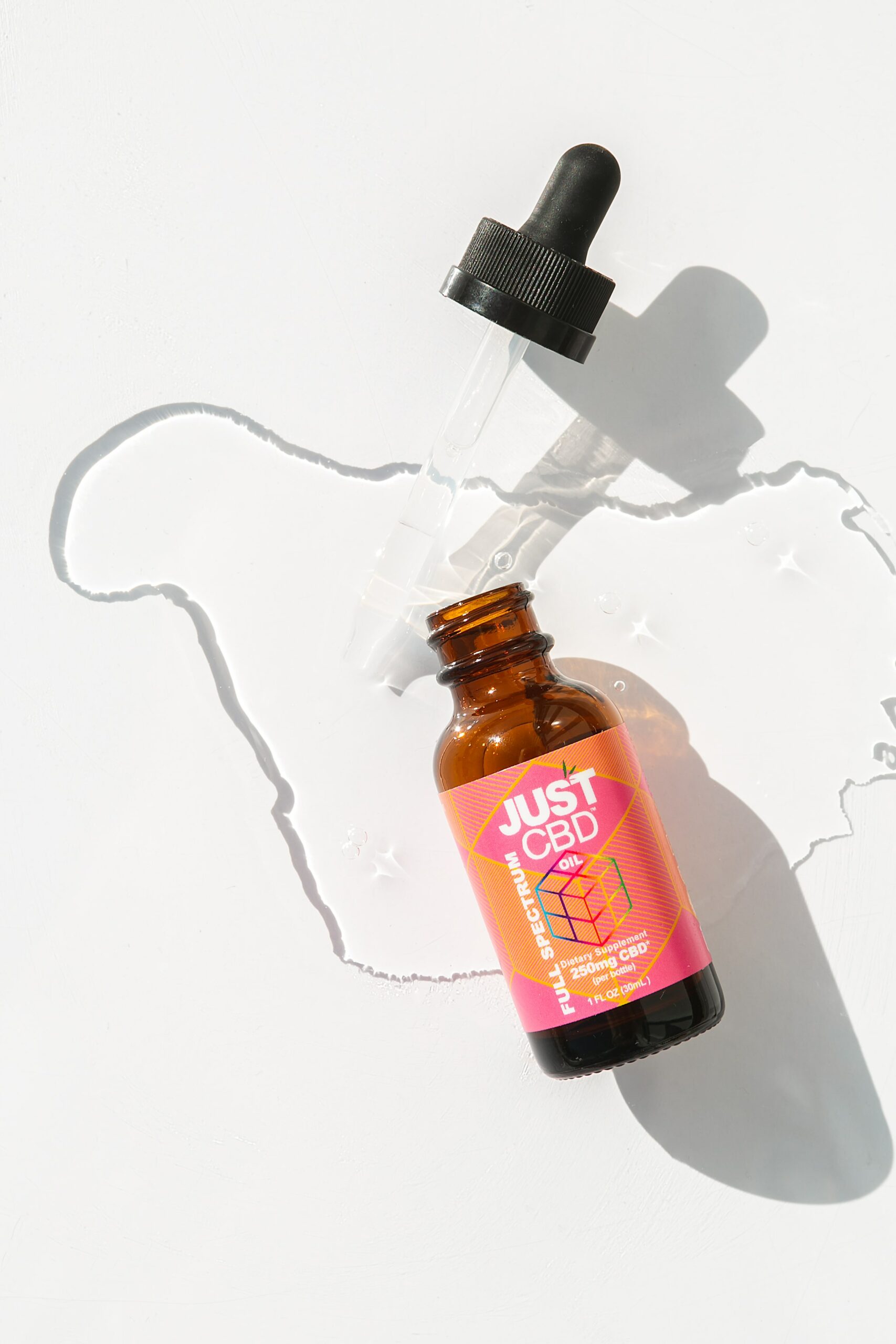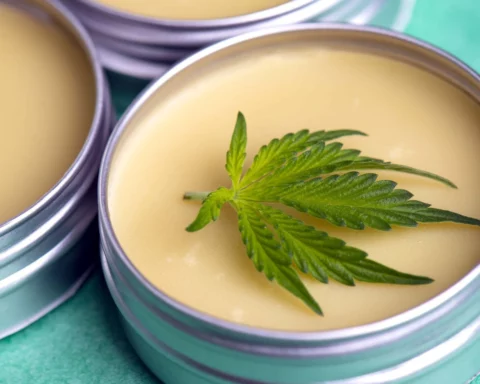Some studies indicate that the skin can absorb topical CBD oil, although not as much as the body absorbs tinctures or CBD oil in edibles. It might influence the endocannabinoid system and other critical functions and processes such as pain and inflammation, although more research is needed to explore how topical CBD works.
Tinctures, oils, and gummies are just a few methods of enjoying CBD and exploring its effects. There is more to CBD, and you could also try its purported health benefits using CBD topicals. A handful of CBD products include balms, patches, lotions, massage oils, shampoos, roll-ons, body sprays, creams, and serums.
Nonetheless, a big question remains; how do CBD topicals work? While research claims that topical CBD oil is absorbed transdermally into the endocannabinoid system (ECS), there is a need for further research to explore the working of CBD, and this article explores what topical CBD is and how it works.
What Is CBD?
CBD is a chemical substance and one of the many active compounds collectively called cannabinoids in cannabis plants. Unlike THC, another abundant cannabinoid, CBD oil is non -psychoactive. It does not leave one feeling ‘high.’ In fact, people fully embrace CBD because of its non-intoxicating nature.
You can explore CBD for its claimed benefits in tinctures, edibles, capsules, vapes, and topicals.
What Is Topical CBD?
It refers to CBD oil meant to be applied topically or on the outer skin. Balm, patches, serums, lotions, massage oils, creams, and shampoos are among the many topical CBD products. Athletes and sportspeople use topical CBD for post-workout recovery, relaxation, pain, and general well-being. However, research is still ongoing to justify that CBD oil might help with these functions. Still, understanding CBD oil works helps you gauge its efficacy for anything you choose to use it for, including pain management and reducing inflammation as in topical CBD.
CBD Research Is Limited:
Even with the many CBD studies, what we do not know about CBD oil outweighs what we know about it. Studies have been conducted on CBD, including topical CBD, but most focus on experimental models and animals. Therefore, there is a need for further studies, especially those focusing on clinical trials on human beings, to determine how productive CBD is for the health benefits linked to it.
Meanwhile, we do not recommend CBD oil for treating, healing, curing, or diagnosing any health condition. Anyone seeking to try CBD oil, including topical CBD, should consult a doctor beforehand.
How Does Topical CBD Work?
The human body comprises an endocannabinoid system, a natural signaling system comprising endocannabinoids, enzymes, and receptors. According to Aizpurua-Olaizola et al. (2017), the system is the center of interest for drugs and therapies, and its receptors interact with them differently. The endocannabinoid receptors are located in critical parts of the body, including the spleen, gastrointestinal tract, white blood cells, stomach, and reproductive system. It’s no wonder that the endocannabinoid system influences critical processes and functions in the body, including sleep, pain, inflammation, appetite, variation in moods, fertility, and reproduction. According to Aizpurua-Olaizola et al. (2017), CBD binds or interacts with the endocannabinoid receptors, putting the body in a corrective mechanism mode. It seems like the skin absorbs the topical CBD, but instead of sending it to the bloodstream, the endocannabinoid system interacts with it.
Topical CBD for Pain
One reason athletes, sportspeople, and the general public use topical CBD is to help them manage pain. Can CBD oil help with pain? In a study by Miller & Miller (2017), rats experienced lower pain with topical CBD. They used CBD gels, a topical product, on rats and other animals and recorded an improvement in pain.
If you try topical CBD oil for pain, consult the doctor beforehand.
Topical CBD for Skin
Humanity suffers from skin conditions that affect people differently. While the intensity and the after-effect of the skin conditions may vary considerably, the itching, discomfort, and skin dryness that follows most skin conditions are undesirable. As if that’s not enough, the conventional management methods for skin conditions, including antibiotics and ointments, do not work for everyone. Could topical CBD help in any way? Seemingly, although there is a need for further research to prove this. According to Baswan et al. (2020), topical CBD might help improve skin health and fight skin disorders. Still, we need more studies to prove the efficacy of topical CBD for the skin.
Topical CBD for Inflammation
Inflammation is a naturally harmless process that should not affect the body adversely. However, when it spontaneously fights the immune cells and not external organisms, it becomes potentially dangerous and linked to the increased risk of autoimmune disorders and many lifestyle conditions. Can topical CBD help with inflammation? Hammell (2016) notes that topical CBD may help reduce inflammation. Still, there are risks linked to topical use of CBD oil, including irritation, so we do not recommend any topical CBD product for inflammation.
Conclusion
There are many topical CBD products through which you can explore CBD benefits, including serums, lotions, massage oils, patches, and balms. Research suggests that topical CBD is absorbed into the skin, and instead of going to the bloodstream, it interacts with the endocannabinoid system, especially through the receptors. As such, topical CBD seems to be helpful for the skin and might reduce pain and inflammation. Nonetheless, there is a need to consult a doctor before trying any CBD product, especially because of CBD’s many knowledge gaps.
References
Aizpurua-Olaizola, O., Elezgarai, I., Rico-Barrio, I., Zarandona, I., Etxebarria, N., & Usobiaga, A. (2017). Targeting The Endocannabinoid System: Future Therapeutic Strategies. Drug Discovery Today, 22(1), 105-110.
Baswan, S. M., Klosner, A. E., Glynn, K., Rajgopal, A., Malik, K., Yim, S., & Stern, N. (2020). Therapeutic Potential Of Cannabidiol (CBD) For Skin Health And Disorders. Clinical, Cosmetic And Investigational Dermatology, 13, 927.
| Miller, R. J., & Miller, R. E. (2017). Is Cannabis An Effective Treatment For Joint Pain? Clin Exp Rheumatol, 35(5), 59-67 Hammell, D. C., Zhang, L. P., Ma, F., Abshire, S. M., Mcilwrath, S. L., Stinchcomb, A. L., & Westlund, K. N. (2016). Transdermal Cannabidiol Reduces Inflammation And Pain‐Related Behaviours In A Rat Model Of Arthritis. European Journal Of Pain, 20(6), 936-948. |
- Learn to Enjoy Self-care Routine - September 21, 2023
- Jonathan Aufray’s Story - July 29, 2023
- From Public Housing To Ivy League: The Inspiring Journey of Crystaltharrell.com and its Founder - June 7, 2023









